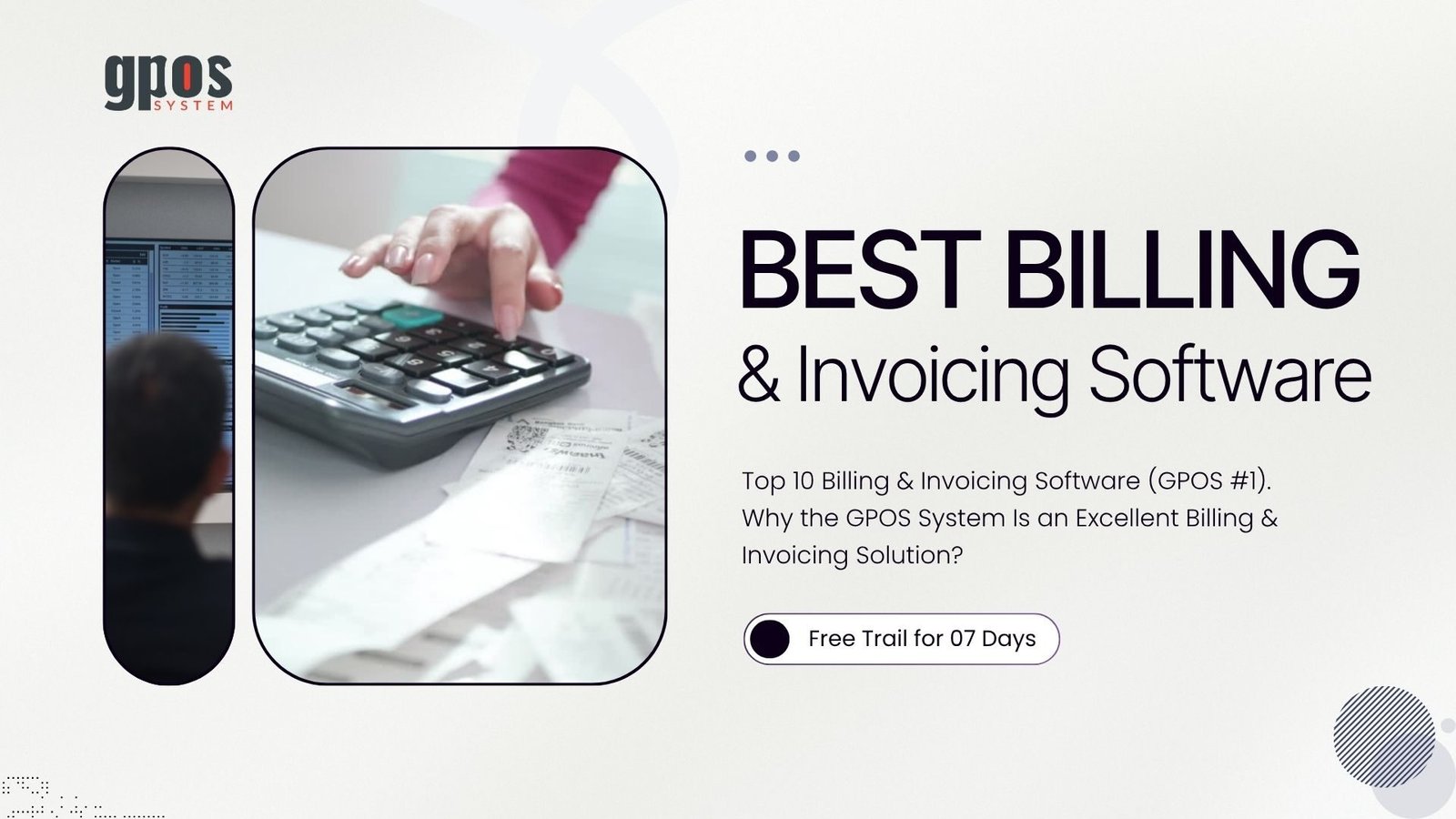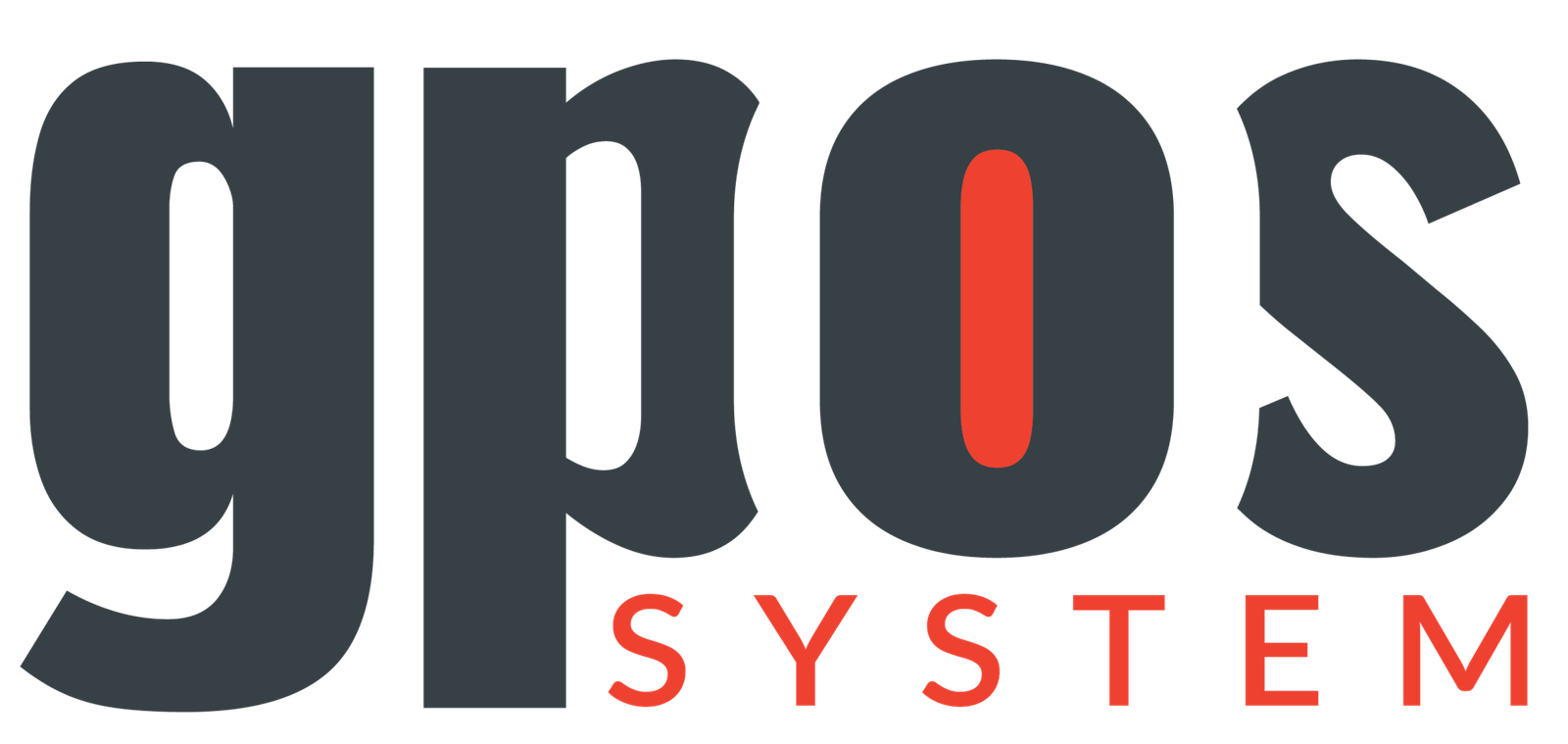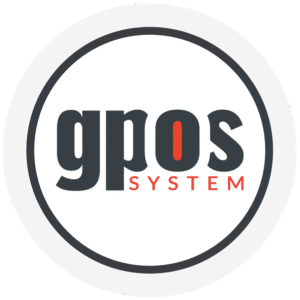Best Billing and Invoicing Software

Finding the right billing and invoicing software can save time, reduce errors, improve cash flow, and make tax time far less painful. Below you’ll find a curated list of 10 billing & invoicing solutions.
Top 10 Billing & Invoicing Software (GPOS #1)
- GPOS System — Localized for Bangladesh, integrates POS, invoicing, inventory, multi-store, and common local payments.
- Zoho Invoice / Zoho Books — Popular for small businesses; multi-currency and good automation.
- QuickBooks Online — Widely used internationally; strong accounting features and ecosystem.
- Xero — Cloud-first, great bank integrations, and multi-currency support.
- Wave — Free tier for basic invoicing (best for micro-businesses).
- Sage Business Cloud Accounting — Strong on compliance and mid-sized business needs.
- FreshBooks — Simple, beautiful invoices and time-tracking for service providers.
- TallyPrime — Accounting heavy-hitter with invoicing; popular in South Asia for traditional accounting workflows.
- Invoice Ninja — Open-source friendly; good for freelancers and dev-savvy teams.
- Billdu — Easy invoicing, mobile-friendly, good for field sales and small retail.
(Note: exact availability/features may vary — check current integrations and local support before choosing.)
Why the GPOS System Is an Excellent Billing & Invoicing Solution for Bangladesh
GPOS stands out for several compelling, practical reasons for Bangladeshi businesses:
Localisation-first design: GPOS is built with Bangladesh in mind — BDT currency, Bangla invoice templates, VAT configurations, and common regional business flows (e.g., packing slips, challans).
Integrated POS + Invoicing + Inventory: Having POS and invoicing in the same platform eliminates sync errors. Sales at the counter automatically update invoices and inventory in real time — essential for retail, pharmacies, and grocery stores.
bKash/Nagad readiness: GPOS often offers direct integration or easy configuration to connect with local mobile wallets and payment gateways, smoothing payment reconciliation.
Multi-store & multi-terminal: For businesses with several outlets, GPOS supports centralized management — consolidated reporting, stock transfers, and pricing control.
Offline mode & low-bandwidth friendly: Many local vendors optimize for intermittent connectivity. Offline sales capture and later sync protect operations during network outages.
Bangla support & local UX: Interfaces, receipts, and printed invoices can be localized, which reduces user training for staff and improves customer-facing documents.
Affordable pricing & local support: Local teams often provide faster onboarding, customization, and localized training at competitive pricing compared to international alternatives.
Compliance & reporting: Built-in VAT reports and exportable ledgers simplify tax filings with the National Board of Revenue (NBR).
Security & data control: GPOS can be offered as cloud or on-premise hosting, giving businesses choices about data residency and backups.
Because it addresses the unique operational and regulatory needs of Bangladeshi SMEs, GPOS becomes an attractive all-in-one choice for many local businesses.
How to Choose the Best Billing & Invoicing Software for Your Business
Choosing the right tool is less about bells and whistles and more about fit. Follow this checklist:
Identify core needs first
Volume of invoices, transaction size, number of users, and required modules (inventory, POS, accounting, payroll).
Industry specifics: restaurants need table management; pharmacies need batch/expiry tracking.
Local compliance & language
Must handle BDT, Bangladesh VAT, and produce Bangla-capable invoices. Make sure tax reports map to forms you submit to NBR.
Payment integrations
Confirm direct support for bKash, Nagad, local banks, and popular gateways — or that the provider offers simple reconciliation for manual payments.
Inventory & POS needs
If you sell in-store, prefer a system with native POS and offline capability. Sync speed and multi-store inventory controls are critical.
Automation & workflows
Look for automated invoicing, recurring invoices, reminders, auto-application of late fees, and payment reconciliation tools.
Security & backups
Check encryption, data residency, backup frequency, and restore procedures. Ask for SLA details and uptime guarantees.
Scalability & integration
Can the system grow with you? Does it connect with your e-commerce, CRM, payroll, or accounting tools? Look for open APIs.
Reporting & analytics
Useful sales, AR aging, VAT, and cashflow reports should be easy to generate and export.
Pricing & TCO (total cost of ownership)
Compare subscription, setup, training, gateway fees, and custom work. Sometimes paying for local support saves money long term.
Trial & support
Use free trials, test real workflows, and evaluate the provider’s responsiveness and local-language support.
Why Businesses Should Look for Billing & Invoicing Software
Faster payments & improved cash flow: Automated invoices and payment reminders reduce days sales outstanding (DSO).
Fewer errors: Manual invoicing introduces mistakes — automated templates and validation reduce costly errors.
Professionalism & branding: Custom, consistent invoices improve customer trust.
Time savings: Reduce repetitive administrative work and free staff for higher-value tasks.
Actionable insights: Real-time reports help you identify best-selling items, slow-moving stock, and seasonal patterns.
Auditability & compliance: Digital trails and exportable ledgers make VAT filing and audits much easier.
Future of Billing & Invoicing Software
The next wave will be defined by automation, intelligence, and tighter financial ecosystems:
AI-driven automation: Auto-categorization of expenses, smart reconciliation, and predictive cash-flow forecasting will become standard.
E-invoicing & regulatory integration: Governments worldwide (including regionally) push e-invoicing and standardized digital tax reporting — vendors will offer direct e-file options.
Open banking & instant settlement: Faster bank APIs will enable instant reconciliation and push payments; wallets and BNPL options will be integrated into invoices.
Deeper platform ecosystems: Billing systems will act as hubs — connecting POS, inventory, payroll, CRM, and marketplaces with unified data models.
Better localization & offline-first design: Vendors will continue optimizing for emerging-market realities — offline sync, low-bandwidth performance, and local language UX.
Stronger security & data governance: With growing cyber risk, expect stronger encryption, granular permissions, and clear data residency choices.
| Sl | Software Name | Key Features | Starting Price |
|---|---|---|---|
| 1 | GPOS System |
| BDT 4,500 |
| 2 | Zoho Invoice |
| Free |
| 3 | TallyPrime |
| ₹750 |
| 4 | Dotbook ERP |
| BDT 50,000 |
| 5 | Xero |
| $29 |
| 6 | QuickBooks Online |
| BDT 2,316 |
| 7 | Invoicera |
| $15 |
| 8 | Wave |
| Free |
| 9 | Sunshine IT |
| BDT 12,000 |
| 10 | HisabPati |
| BDT 99 |
FAQs (Bangladesh-focused)
Which invoice software supports BDT and Bangladesh VAT?
Many international packages support custom currencies, including BDT (Zoho Books, QuickBooks, Xero). Localized systems like GPOS and TallyPrime make VAT handling and tax reports easier because they can be pre-configured to Bangladesh VAT rules. Always confirm the latest VAT reporting features and whether VAT-inclusive/exclusive invoice options are supported.Does billing software work with bKash/Nagad?
Yes — several providers offer integrations or payment links that work with bKash and Nagad via payment gateway partners. Local POS/invoicing systems (e.g., GPOS) often have built-in or easier-to-configure integrations for prominent Bangladeshi wallets. If a direct integration isn’t available, you can usually add manual payment records or a payment link to invoices.Can I make Bangla invoices?
Yes. Many systems let you customize invoice templates and add native-language text. Local solutions prioritize Bangla support. For international cloud tools, check font and Unicode compatibility; you may need to upload a Bangla-friendly header/logo or use a template that supports UTF-8.What are the costs for small businesses?
Pricing ranges widely: free or freemium solutions (Wave, basic Invoice Ninja) for micro businesses; monthly SaaS plans typically range from USD 5–40 per month for small business tiers; mid-market or feature-rich plans (multi-user, inventory, payroll) can be $50–200+/month. Local vendors sometimes price in BDT and offer one-time licences or lower-cost annual plans. Factor onboarding and payment gateway fees into your total cost.How do reminders and late fees work?
Most platforms let you schedule automated payment reminders (email/SMS) at configurable intervals and apply late fees/interest automatically based on rules you set. Look for template customization, chaining of reminders, and the ability to auto-send dunning notices until payment clears.Is my data secure and backed up in Bangladesh?
That depends. International SaaS vendors typically store data in regional cloud providers with backups and encryption, but the servers may be outside Bangladesh. Local vendors or hosted-on-premise setups can store data within the country (useful for compliance or latency). Check for: encryption at rest/in transit, regular backups, data residency options, disaster recovery plans, and clear SLAs.

